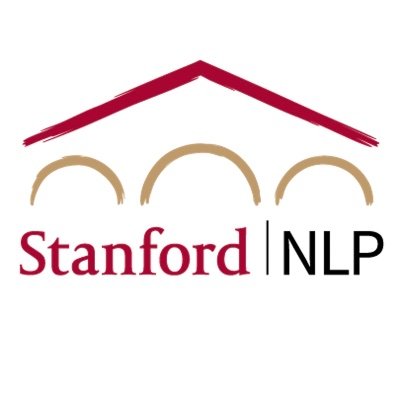
Joon Sung Park
@joon_s_pk
Followers
8K
Following
8K
Media
12
Statuses
515
Building frontier simulations. Introduced generative agents, and simulations (Smallville). CS PhD @stanfordhci + @stanfordnlp. Oil painter.
Palo Alto, CA
Joined August 2010
Simulating human behavior with AI agents promises a testbed for policy and the social sciences. We interviewed 1,000 people for two hours each to create generative agents of them. These agents replicate their source individuals’ attitudes and behaviors. 🧵 https://t.co/FOVcOQduXO
27
258
973
Stanford NLP 25th Anniversary🤩🤩🤩
Today, we’re overjoyed to have a 25th Anniversary Reunion of @stanfordnlp. So happy to see so many of our former students back at @Stanford. And thanks to @StanfordHAI for the venue!
9
39
600
What if LLMs could learn your habits and preferences well enough (across any context!) to anticipate your needs? In a new paper, we present the General User Model (GUM): a model of you built from just your everyday computer use. 🧵
18
94
369
📢 New policy brief: AI agents that can simulate human behaviors and attitudes can help test ideas in social science. Our latest brief introduces a generative AI agent architecture that simulates the attitudes of 1,000+ real people. Learn more: https://t.co/CIRTGbNzSX
7
108
338
Todo lists, docs, email style – if you've got individual or team knowledge you want ChatGPT/Claude to have access to, Knoll ( https://t.co/sD6WNy3j6l) is a personal RAG store from @Stanford that you can add any knowledge into. Instead of copy-pasting into your prompt every time,
5
30
88
Book announcement: with @stanfordmav, we are publishing "Flash Teams: Leading the Future of AI-Enhanced, On-Demand Work." It's a leadership book synthesizing a decade of @Stanford research on how computing, online platforms, and AI reshape teamwork. Coming October from @mitpress!
4
14
77
New paper: Do social media algorithms shape affective polarization? We ran a field experiment on X/Twitter (N=1,256) using LLMs to rerank content in real-time, adjusting exposure to polarizing posts. Result: Algorithmic ranking impacts feelings toward the political outgroup!🧵⬇️
5
71
238
Crazy interesting paper in many ways: 1) Voice-enabled GPT-4o conducted 2 hour interviews of 1,052 people 2) GPT-4o agents were given the transcripts & prompted to simulate the people 3) The agents were given surveys & tasks. They achieved 85% accuracy in simulating interviewees
43
301
2K
Excited to share this new work that shares a new method for creating realistic generative agents that can be used for synthetic social science. Such a pleasure to work with lead author @joon_s_pk
Simulating human behavior with AI agents promises a testbed for policy and the social sciences. We interviewed 1,000 people for two hours each to create generative agents of them. These agents replicate their source individuals’ attitudes and behaviors. 🧵 https://t.co/FOVcOQduXO
2
4
42
So thrilled to share our work on this~! Grounding generative agents in real, verifiable behavior is the step that takes this method from producing simulacra to creating simulations that capture the richness of human experiences.
Simulating human behavior with AI agents promises a testbed for policy and the social sciences. We interviewed 1,000 people for two hours each to create generative agents of them. These agents replicate their source individuals’ attitudes and behaviors. 🧵 https://t.co/FOVcOQduXO
5
10
70
In a follow-up to the generative agents paper, @joon_s_pk+team demonstrate that anchoring agents in rich qualitative information about an individual enables simulations to replicate an individual's attitudes 85% as well as the individual replicates themselves, + reduces bias
Simulating human behavior with AI agents promises a testbed for policy and the social sciences. We interviewed 1,000 people for two hours each to create generative agents of them. These agents replicate their source individuals’ attitudes and behaviors. 🧵 https://t.co/FOVcOQduXO
1
10
64
How close can LM agents simulate people? We interview person P for 2 hours and prompt an LM with the transcript, yielding an agent P'. We find that P and P' behave similarly on a number of surveys and experiments. Very excited about the applications; this also forces us to think
Simulating human behavior with AI agents promises a testbed for policy and the social sciences. We interviewed 1,000 people for two hours each to create generative agents of them. These agents replicate their source individuals’ attitudes and behaviors. 🧵 https://t.co/FOVcOQduXO
7
36
200
This is groundbreaking, super exciting work!
Simulating human behavior with AI agents promises a testbed for policy and the social sciences. We interviewed 1,000 people for two hours each to create generative agents of them. These agents replicate their source individuals’ attitudes and behaviors. 🧵 https://t.co/FOVcOQduXO
2
6
48
Thank you to my coauthors, @msbernst, @percyliang, @RobbWiller, @cqzou, @aaronshaw, @makoshark, @merrierm, @carriejcai. And thank you @KolluriAkaash for helping out with the open source release, and to @StanfordHCI and @StanfordNLP for fostering this work. (14/14)
3
1
33
In closing, doing great interdisciplinary work that respects the tradition and rigor of each field is beyond any one person. This work would not have been possible without an all-star team that embodied its interdisciplinary nature, intersecting AI and social sciences. (13/14)
1
0
27
For those interested, here is an open-source repository and a Python package for this work: Github: https://t.co/GQe9Gjd89e (While we are not releasing the participant data, I have included my personal generative agent in the repo. :)) (12/14)
github.com
Contribute to StanfordHCI/genagents development by creating an account on GitHub.
5
2
49
So, to support research while protecting participant privacy, we (Stanford authors) plan to offer a two-pronged access system in the coming months: 1) open access to aggregated responses on fixed tasks, and 2) restricted access to individual responses on open tasks. (11/14)
1
0
20
We spent countless hours discussing ethics with the team, the IRB, and participants. Here’s what we believe: systems hosting generative agents of real people must, at a minimum, support usage audits, provide withdrawal options, and respect individuals' consent and agency. (10/14)
1
0
25
At the same time, this work points to the beginning of an era in which generative agents can represent real people. This ought to bring both excitement and concerns: how can we balance the potential benefits while safeguarding individuals' representation and agency? (9/14)
1
0
26
In sum, this work opens the door to simulating individuals. We believe that accurately modeling the individuals who make up our society ought to be the foundation of simulations. The resulting agent bank of 1,000 generative agents will further facilitate this function. (8/14)
1
0
28
In addition, our interview-based agents reduce accuracy biases across racial and ideological groups compared to agents provided with demographic descriptions. We attribute this to the agents in our study reflecting the myriad idiosyncratic factors of real individuals. (7/14)
1
0
25













